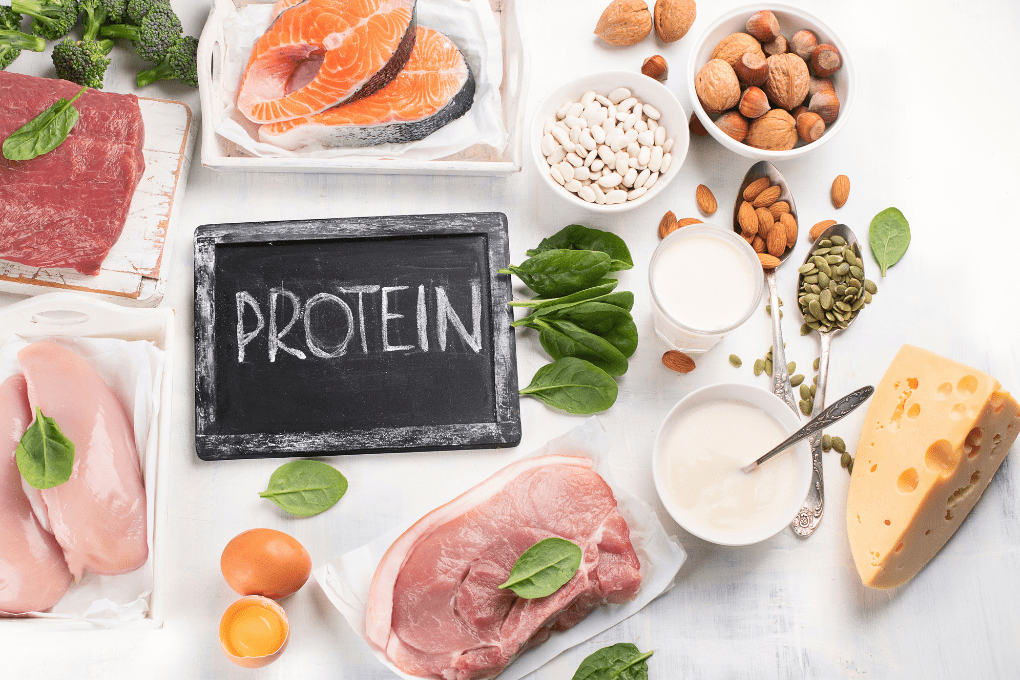
Building muscle requires adequate protein consumption throughout the day. Many try to meet their daily protein recommendation with supplements, but can you reach your protein consumption just by eating the right foods?
In this blog post, you’ll learn about:
- The importance of protein with building muscles
- Eating a high-protein diet by pacing your intake
- What protein-rich foods to eat and how much
What Role Does Protein Play in Building Muscles?
You have worked hard to build your muscle and with proper protein consumption, you can keep it. Dietary protein is broken down into amino acids by your digestive tract and those amino acids are used to build muscles. The presence of amino acids stimulates muscle recovery and building.
More Protein Equals More Muscle, Right?
This is not necessarily true. Excessive protein will be stored as fat or excreted out of the body.
Consuming those high-protein powder shakes or eating too many protein bars will likely result in your body getting rid of it in one way or another. It may be best to save your money and eat protein-rich foods throughout the day.
Pace Your Protein
An easy way to recover and maintain your muscles is to pace your protein throughout the day.
Research has shown that consuming about 15-25 grams of protein four times per day will help you achieve your protein goals.
What Should I Eat?
Focusing on high-quality protein can help support your active lifestyle. Protein is naturally found in a variety of animal and plant foods, but not all protein is created equal. High-quality protein is found in animal products such as milk, cheese, yogurt, eggs, and meats. This type of protein contains all the essential amino acids that your body cannot make on its own.
Plant-based foods do not contain all the essential amino acids, so you would have to eat a larger amount of a variety of plant-based foods in order to obtain the same amount found in just 4 oz of chicken or three cups of milk.
20 grams of protein is equivalent to:
- 3 whole eggs or 6 egg whites
- 8 oz of Greek yogurt
- 2/3 cup of cottage cheese
- 3 cups of milk
Adding a protein source to each meal or snack can be enough protein to maintain and build your muscles.
If you’d like more information about exercise and nutrition, be sure to check out our other blogs “Lift Weights? Here’s What to Eat” and “Exercise Recovery: White or Chocolate Milk?”



